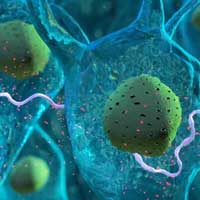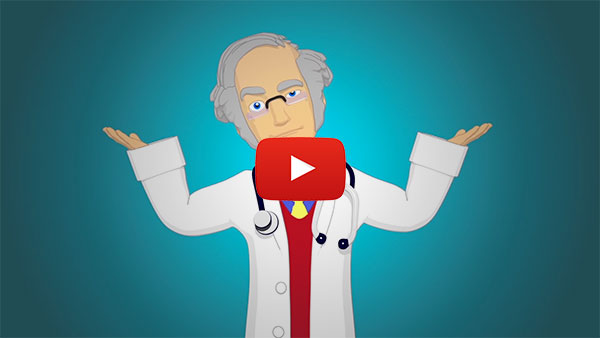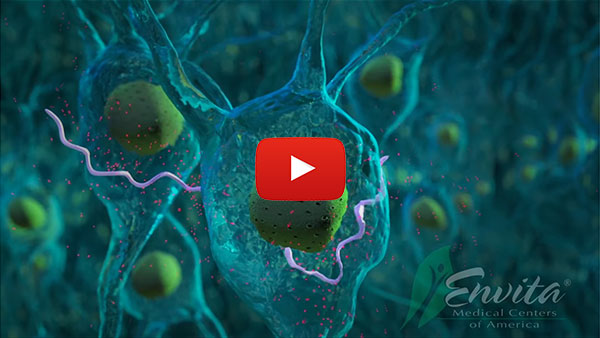Keys to Uprooting Chronic Fatigue Syndrome, Epstein-Barr Virus and Infectious Mononucleosis, Lyme Disease Complex

Epstein-Barr (EBV), also known as HHV-4, is a common human herpes virus that will infect virtually everyone on the planet at some point in their lifetimes. It is possible for EBV to remain dormant in the body throughout the entirety of an individual's life span.
Typically, the disease is transmitted via saliva and takes 30-45 days to present with symptoms, if it does at all. During this period, the host is most likely to spread EBV to others. However, when these infections last as seen in chronic fatigue patients it becomes essential to test for chronic Lyme disease complex and its coinfections and immunity.
Children and Autoimmunity, Autism-Like Symptoms and CFS
In most cases, children infected with EBV show no symptoms at all. Adolescents, on the other hand, are usually not so fortunate. Among 35 to 50 percent of this group will develop infectious mononucleosis. With "mono" comes much unpleasantness in the form of fever, sore throat, swollen lymph glands and elevated white blood cell counts, as well as the chance for swollen liver and spleen. Should symptoms persist beyond one-half a calendar year, patients should be tested for Lyme disease or Chronic Fatigue Syndrome (CFS).
Should Lyme disease testing come back positive (one can expect the bacteria and coinfections to grow at a much higher rate than usual) it often imitates Autism-like symptomology. In some rare cases, impact on the heart and central nervous system are also possible. Some patients have poor immune systems, so their Lyme disease testing and coinfections can come back as false negatives. This is one reason why it is critically important to have top LLMD (Lyme Literate Doctors) such as those found at the Envita Medical Centers.
Coinfection of Chronic Lyme Disease and Epstein Barr Linked to Autoimmune Diseases and MS
Epstein-Barr and Multiple Sclerosis are linked and their relationship includes some other autoimmune diseases as well. Research repeatedly shows abnormal accumulations of EBV in MS patient brain lesions, an observation that also held true with their B lymphocytes. Patients suffering with other autoimmune diseases had similar findings regarding their pathological tissues.
Viruses have also shown that they may be activated in the presence of Lyme disease and other tick-borne zoonotic illnesses. In other words, a human carrier of herpetic virus when combined with other infections can activate their dormant Epstein Barr. This can accelerate debilitating fatigue as well as a host of other autoimmune and neurological symptoms.
Epstein Barr and Autoimmune Disease Linked to Viruses
Viruses have long been suspected by immunologists of awakening autoimmune diseases. Much of this thinking has to do with viruses' remarkable ability to confound the immune systems of their hosts. EBV infects 95 percent of humans and, time after time, shows it is associated with MS through epidemiological and serological studies. Nevertheless, more concrete evidence is yet to be provided.
Part of the problem of dealing with EBV infection is the fact that the virus is stealthy enough to hide in B lymphocytes and go into hiding (become dormant) for the remainder of the host's life. In other cases, the host's immune system will fail to control the EBV, thereby reactivating it. In some cases, this can be tumor-causing.
In 2007 it was shown that EBV is present in the brain lesions of MS patients after being transported into the central nervous system by B lymphocytes. It was also made evident that these infected B cells, when they do present in the brain, become the target of an immune attack. This often will cause a situation leading to chronic inflammation and eventually tissue destruction. Seemingly, EBV and its "unwilling smuggler" B cells are the main cause of brain damage in MS patients. This abnormal accumulation of EBV infected B cells is found among pathological tissues in other autoimmune diseases as well.
Progression of Autoimmune Diseases and MS
Epstein-Barr virus (EBV), the pathogen that causes mononucleosis, has been shown by researchers to facilitate neurodegeneration in persons with multiple sclerosis. Moreover, EBV could very well be the environmental factor that actually leads to the disease in adults – in particular, its characteristic immune dysregulation.
However, as MS patients do not usually have increased immune responses to other common viruses, the higher rate of EBV seroprevalence (coupled with the higher anti-EBV antibody titre) cannot be the result of some hyper-immune state in MS patients. It seems instead that the increased risk for MS, particularly in those of higher age, decidedly points to an irrefutable link between MS and EBV. It may even be that EBV is completely requisite for MS to develop in adults.
At Envita, we provide top immunotherapies from all over the world that can help speed healing time and boost the immune systems in those with EBV.
Professor of medicine and multiple sclerosis expert Robert Zivadinov shares, "A growing body of experimental evidence indicates that past infection with EBV may play a role in MS – but the relationship of EBV and the brain damage that can be seen on MRI scans had not been explored."
In one Zivadinov-led study, it was found that higher levels of anti-EVB antibody measured at the study\s origin appeared to have a direct correlation to a decrease in both gray matter and total brain volume over the course of the three-year follow-up.
Virology of Epstein Barr
Epstein-Barris is a DNA virus that multiplies within the nucleus of its host cells. It infects both B-cells and epithelial cells, establishing latent infections in the B's and actually multiplying in the epithelial cells. Infected persons are then likely to produce virions (inert carriers of the EBV genome), carry and produce EBV-specific antibody and harbor latently infected memory B-cells. It is particularly adept at avoiding immune system defenses.
Bringing about Cancer
EBV is tied to B-cell malignancies (like Hodgkin's lymphoma (HL) and lymphoproliferative disease) among the immunosuppressed. Findings suggest that T-cell lymphomas are also likely related, while other epithelial tumors such as gastric cancerscan develop in similar fashion. The presence of multiple extrachromosomal copies of the viral genome in tumor cells and the expression of part of the EBV genome characterize these tumors.
Envita is a premier integrative medical center that provides cancer and chronic disease treatment options from across the globe. Envita's LLMD (Lyme Literate Doctors) have developed revolutionary protocols to help patients improve their immune systems and their overall quality of life. Envita excels by treating disease causes rather than by addressing symptoms alone.
For more information or to schedule a consultation, please contact us today.























